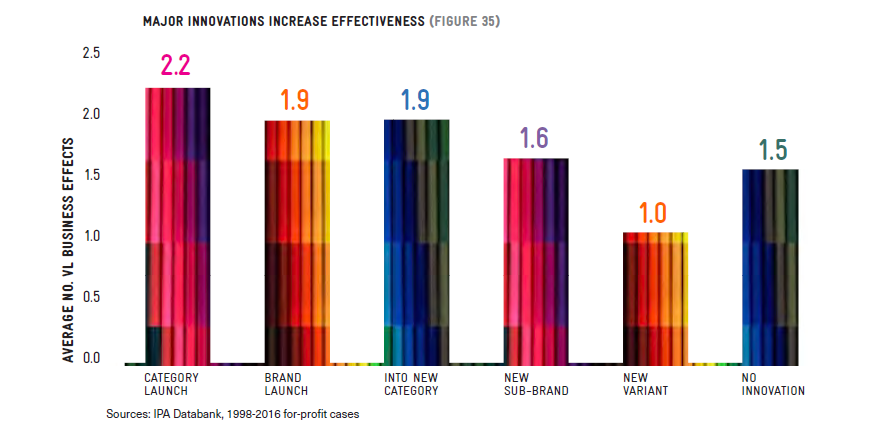With incremental product innovations and new entrants crowding the mobile market, pressure to perform is higher than ever. Samsung’s Nick Milne outlines the key questions Samsung will be addressing to ensure their ongoing effectiveness.
Samsung asks 3 crucial questions to ensure ongoing success
I once had the pleasure of listening to a McLaren F1 team pit stop manager talk about how they forensically assessed every single part of a pit stop to shave one second off the pit stop time for their racing drivers. They already had the fastest pit stop, but the relentless pursuit of being the quickest and best meant always reviewing, assessing and identifying how to improve.
Much like what we do as marketers in using assessment of past performance to create better campaigns.
However, there was one seemingly throw away section at the end of the talk which, may not have had the same razzmatazz as the high profile pit stop, but on reflection, shows the challenge we have in moving from being better as marketers to being better as an integrated businesses with clear accountabilities and sense of belonging with business results.
So what was said that was so relevant to the world we find ourselves in today?
Whilst the F1 team and crew would celebrate success, the employees back at the factory felt no sense of ownership and involvement in the victory. Factory workers producing parts for the winning cars felt they may have well been producing nuts and bolts (no offence to those that produce nuts and bolts!). Race days soon became days where all McLaren workers would or at least had the opportunity to take their families to the office and enjoy the races. So a real shift in the culture of McLaren to create a real sense of belonging and shared achievement.
Does a good company culture equal a better business performance? Well Keskett and Kottler certainly argue so in their book, Corporate Culture and Performance, (1992). They researched 200 companies detailing their corporate cultures and investigated how each company’s culture affected its long term economic performance. They go on to argue that strong corporate cultures, which include highly valuing employees, customers and owners, are associated with strong financial results.
I was recently asked whether it is possible to shift the culture of the organisation through the power of data. My answer was yes, based on the initial success of the well documented O2 Marketing Effectiveness story, but I was probably too quick to answer as data (or evidence) is only part of the answer.
At the recent DataIQ Transform 2018 conference, culture was the thread across all presentations which defined whether cultural transformation with data can be successful. What felt like the critical bit to success was whether the transformation needed was pushed down from leadership or not.
Organisations can be complex. They can be siloed. They can be big global beasts. In these situations, when pulling people or siloes together from the bottom up means than more likely than not you are nudging the organisation closer together rather than giving the jump start most often needed.
The IPA will be continuing to look at what is next with marketing effectiveness through 2019 as we move on from the third successful #Effweek, so I won’t go too much into the detail of what is being discussed at the EffWorks advisory board level. However, the key questions are:
How do we overcome silos between marketing and finance to integrate for sales success?
- How do we set KPIs to monitor investment performance?
- How do we manage for the short vs long term (opex and capex)?
These questions will be critical to answer for the continued success of Samsung Electronics in the mobile market. Samsung has a proud history in product innovation (and rightly so) and the culture of building premium, quality products at great speed has enabled Samsung to be truly successful.
But now with mobile product innovation being perceived as incremental and new entrants to the UK from China with Huawei and Xiaomi, the pressure to keep up performance is high. If Binet and Field indeed have proved from the IPA Effectiveness papers that minor product innovations do not increase effectiveness, then creating total business accountability for the continued success within the mobile market for Samsung has never been so important.

To progress at Samsung, in my opinion, we need to think about Samsung as a single entity; building on the strengths of what we know as a business about individual products and the experiences we give our customers, to really putting the customer at the heart of the business of what we do. In return, we will increase the return on marketing investment through delivering innovation through one business lens rather than a category-by-category lens.
So a tough challenge lies ahead to create this cultural shift. Reverting back to the very good question of whether this shift could be helped through the power of data; my answer is still yes, but as well as a ‘bottom-up’ nudge in the right direction, it also needs to be embedded and championed from the top-down to achieve full effectiveness.
Nick Milne is Head of Consumer & Marketing Analytics at Samsung Electronics and a member of the EffWorks Client Advisory Board.



